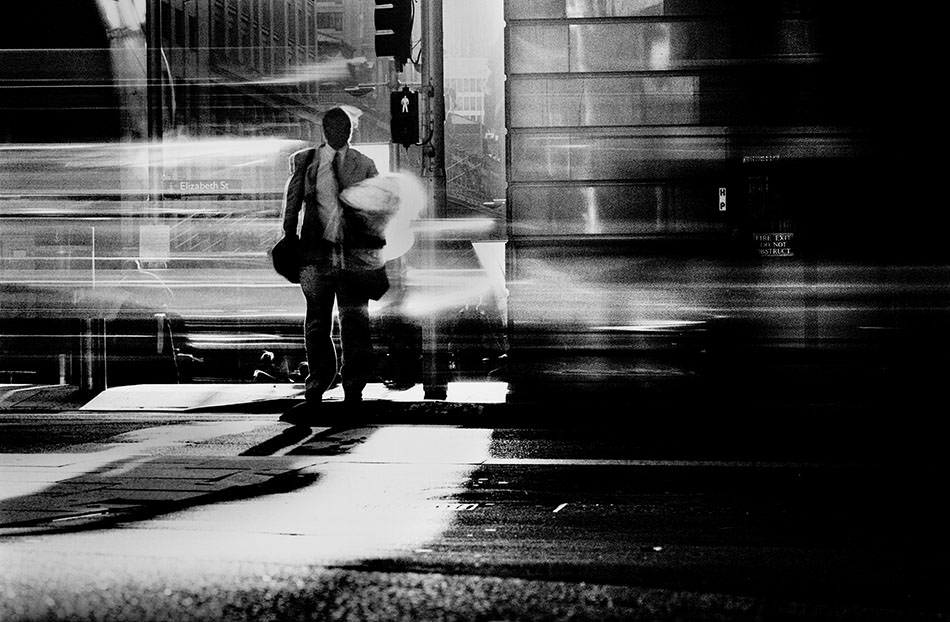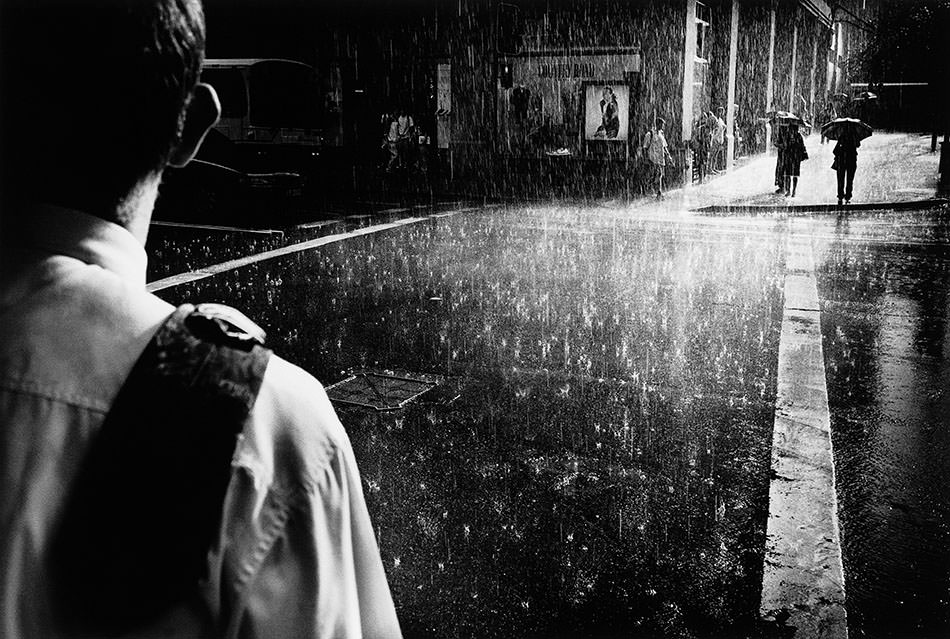The oddest places keep reappearing in my dreams, outlining the life I’m leading beneath the one I officially acknowledge. Over and over I’m in a hotel, checking out, dealing with the challenges of a new space, involved in some complex transaction having to do with room service. Over and over I’m in an airport, too, not usually late, but caught up in the tangles of some schedule change or confusion.
In New York, in my dreams, I’m always on some part of West 48th Street, or thereabouts, having to negotiate the dark and (in my sleep) lawless blocks of Midtown. Manhattan has a huge park at its center, and ease and shopping high up on the east, but every time I dream of it, my mind homes in on a passage through a vast and lightless Hell’s Kitchen, as it was when I lived in the city in the 1980s.
Paris is always bright shopping streets, at Christmas time, at night; I’ve just flown in and, jetlagged, quickened, I race out to roam along the river, past the festive windows, through the dark.
The content of my dreams has long ceased to interest me; but their proportions, the way they rearrange the things I thought I cared about, the life I imagined I was leading, won’t go away. Why do I almost never see my mother in my dreams, although, alone in her eighties, she fills my waking thoughts so much? And why, conversely, do I return again and again in sleep to Paris, a city I haven’t visited often in life, as if under some warm compulsion?
I went there in life not long ago, to try to chase the connection down, but of course my search yielded nothing. Why, as I keep revisiting Paris in the night hours, do I very rarely see Santa Barbara, where I’ve been officially resident for almost fifty years? In my dreams, when it does appear, it’s simply a wilderness, a blank space in the hills next to which I stay, through which some cars are edging, tentative and lost.
My dreams are simply bringing forth what I think but don’t admit to myself, perhaps; they’re not revealing any truth so much as reflecting my projections back at me. Yet the way they upend what I think I think speaks for some intuitive truth: the least important moments may transform our lives more radically than crises do. I stopped off for an overnight stay at Narita Airport in 1983, and those few hours moved me to relocate to Japan. Meanwhile, the times when I have watched people go mad, try to take their lives in front of me, or die, seem barely to have left a trace.
Perhaps it’s the very chanceness of a chance encounter that suggests to us that it’s observing some secret logic deeper than the one we recognize? Certainly, my subconscious—doesn’t every writer find this?—returns again and again to an idle morning along the Malecon in Havana and never seems able to do anything with all the real Shakespearean drama of my, or any life.
Perhaps we impute too much to dreams precisely because we cannot control them; we infer that they come to us from some larger or at least external place that knows things that we don’t. Certainly my interest in their reapportioning of the dimensions of my life began to rise when I recently spent eight years writing on the kinship I felt with the unmet novelist Graham Greene. The fact that there was scant basis for my sense of affinity was precisely what gave my presumed connection potency; what one can’t explain away keeps echoing inside one as the explicable never does.
That, I felt, was the basis of Greene’s own faith, hedged and reluctant though it was; he may not have allowed himself to believe in God, but he certainly had a strong belief in the inexplicable, in mystery (even in the devil), which made it hard for him to rule out anything and be as skeptical as he would have liked. His life as a novelist, a professional conspirator with the subconscious, only deepened this sense of the dark places around him (or inside him): he wrote in a story about a dead woman found in a British railway station and, four months later, a woman was actually found dead in a British railway station; he dreamed of a ship going down in the sea, again and again, and, again and again, awoke to find out that a ship had truly gone down in the night.
Advertisement
What fascinated me about Greene during my recent excursions into his life and work was that he seemed split down the middle: at the age of sixteen, he tried to run away from his boarding-school (not least because his father was headmaster), and, though he failed, his parents decided, in response, to send him to live for six months with a wild Jungian dream-analyst in London. For half a year during the most formative time of his life, his only academic obligation was to tell the Jungian every morning his dreams, which occasionally turned around the dream-analyst’s voluptuous wife. From that point on till the last novel Greene published before his death, The Captain and the Enemy, he returns repeatedly to stories of a boy leaving the house to which he officially belongs and descending, sometimes literally, into an underground world ruled over by a colorful, charming rogue and the rogue’s moll.
The book of Greene’s that came out soon after his death, A World of My Own, was actually a record of his dreams, carefully written down during the last twenty-four years of his life (and in his youth). Greene was no stronger than any other writer at making his dreams live for us, and his publication of his dream-record can seem at once a typically mischievous, subversive gesture and a way to put himself out of our reach, to remind us how little we know of him, or ourselves. But the fact he was so influenced by dreams seems to sit at the core of him, incongruous as it was in his middle-class, almost professionally unbelieving England. The space he left for what he couldn’t apprehend was exactly what gave his books a hauntedness you don’t find in Huxley or Waugh.
Writers’ dreams have never stayed with me or gripped me any more than those of any other people, though the ways they use them, from Shakespeare to Joyce, have often seemed to reveal as much as any of their daylight scenes do. A writer, more than most, is living every day with the often painful consciousness that he has things inside of him he’d never have guessed at, and, willy-nilly, may write a scene today that turns into real life three months from now.
The subconscious seems to be drawing from the future as much as from the past—it certainly is heedless of tenses—and so the writer becomes a fetishist, or superstitious in spite of himself, as if he’s working with some version of those dolls into which other fantasists stick pins.
I used to keep a dream diary when I was in my twenties and still under the spell of a boyhood ingestion of Jung, perhaps, or a cheap excitement about the dark. I stopped when I noticed that all the time and energy I was spending transcribing my dreams in the dead of night, before I’d properly woken up, was detracting from my daytime activities; the night was claiming me full-time, to the point where I could no longer do my conscious work.
Or maybe I put my dream diary away when I reread my near-illegible scribbles, and saw over and over that I had had dreams in January 1980 that had, in July 1980, become real life. But other things I’d dreamed hadn’t so obviously come to pass. I was wandering through a landscape where I couldn’t speak the language or divine the rules.
I used to dream often of a garden in Kyoto, along the eastern hills in a southern part of town that didn’t—quite—exist in life. I would feel myself wandering through a labyrinth of narrow streets to some station-cum-shopping complex on the western side of town. Why I began to dream of this—or why I remade the city in my sleep—of course I never knew. But it was those hills that always called to me in my conscious life, as the great temples and celebrated beauties of the city never could.
Part of a continuing NYRblog series on dreams.




